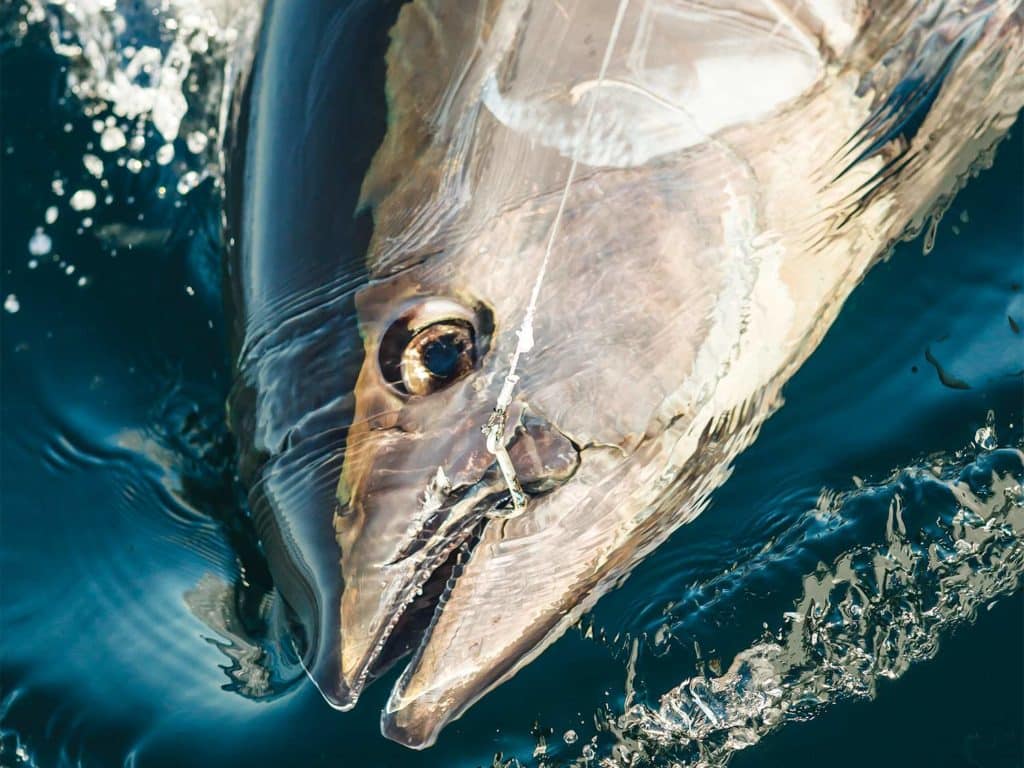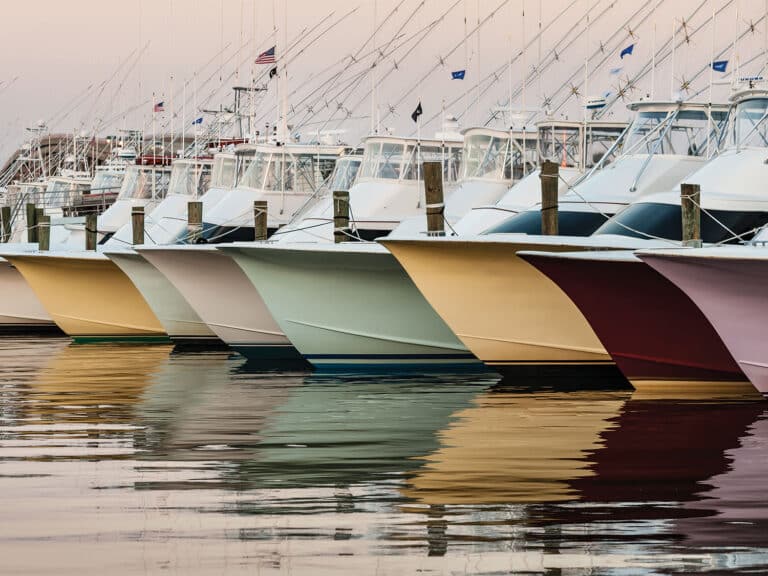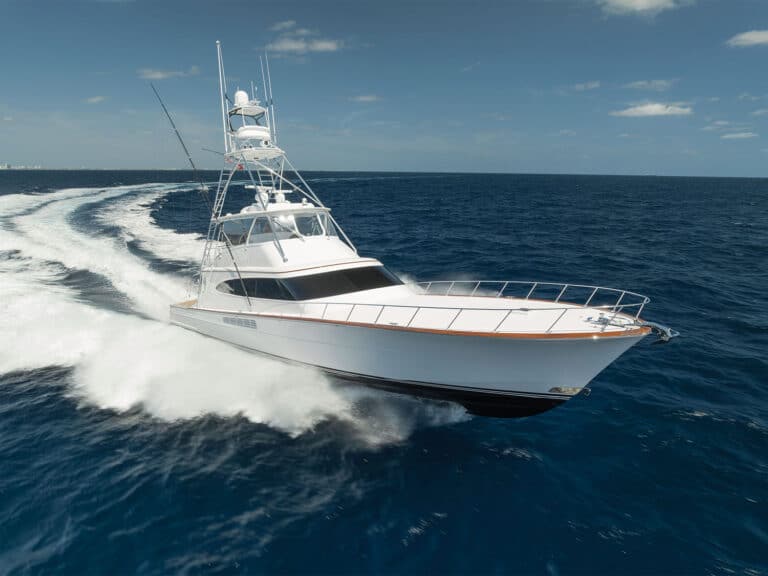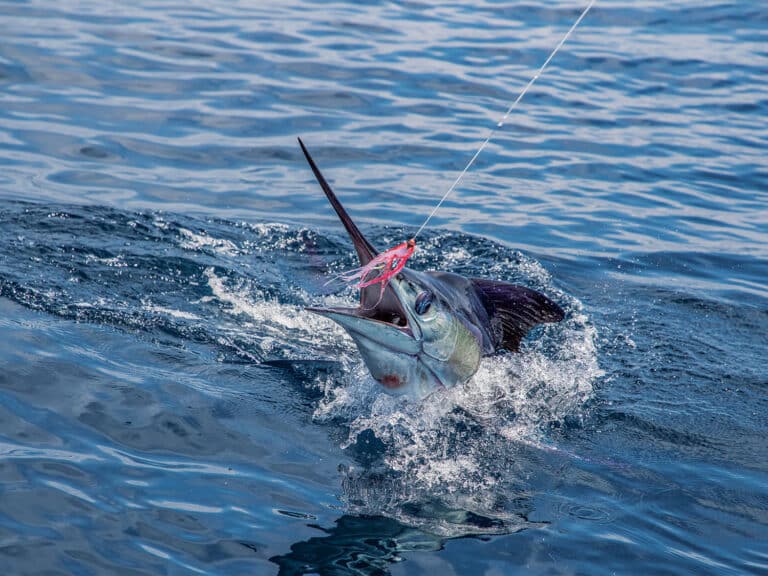
In recent years, the numbers of Atlantic bluefin tuna in the waters off Europe, and the United Kingdom in particular, have been increasing significantly. This recovery has led to a growing interest in the species from the scientific community, the commercial-fishing sector and, of course, recreational sport fishermen. However, with no allocated quota for bluefins, it has been illegal for British sport and commercial fishermen to specifically target these fish in UK waters.
In a campaign to establish a legal and well-managed recreational fishery for bluefin tuna, representatives from the recreational-fishing sector argued that a catch-and-release program could contribute to international research efforts for this species, in addition to the socioeconomic benefits it could bring to coastal communities. Currently, a program known as Thunnus UK—a collaborative research project between the University of Exeter; the Center for Environment, Fisheries and Aquaculture Science; and the Tuna Research and Conservation Center of Stanford University—is working to provide a baseline understanding of the ecology of Atlantic bluefin tuna in the waters off the British Isles; the project is also supported by the UK government’s Department for Food, Environment and Rural Affairs, and the European Maritime and Fisheries Fund.
Watch: Learn to rig a swimming mackerel here.
In 2019, a few sport-fishing boats that met an intricate list of requirements stipulated by the team of scientists running the program were, for the first time, allowed to actually target tuna, but only on those days organized by the University of Exeter team. Experienced anglers were permitted to book a trip with participating volunteer boats in order to aid in the capture of bluefin tuna for electronic-tagging purposes, with the hope being that data obtained would help in establishing a recreational sport-fishing industry for bluefin tuna in the UK.
The program was a success, so earlier this year, CEFAS invited suitable charter vessels and skippers to request an application pack to participate in the catch-and-release fishery in English waters. This groundbreaking program will permit up to 15 charter-boat skippers to take out paying customers to catch bluefin tuna, which would then be tagged and released. The catch-and-release program has also encouraged Scottish, Welsh and Northern Irish stakeholders to pursue a similar agreement that is required from these administrations in order for them to operate alongside and within the plan agreed with DEFRA for England.
Training in fishing, fish-handling, tagging and data-collection techniques will be provided to successful applicants by CEFAS, awarding the necessary scientific license to fish. CEFAS will work collaboratively with captains by providing observers throughout the program to ensure that the operating standards are maintained and that the program delivers valuable research, while also giving the highest consideration for the welfare and conservation of the tuna themselves.
The 15 professional charter-fishing vessel owners and captains will be specifically authorized under a newly designed scientific license created by the Maritime Marine Organization to catch, tag and release tuna from mid-August through mid-November. The participants will be selected based upon a CEFAS-operated process that includes meeting an array of criteria, including the suitability of the vessel, the captain’s experience catching large pelagic fish and data collection, and access to experienced crew, as well as the commitment to adhere to the operational requirements and terms of the contract that the vessel owners and skippers would be required to sign. The overall aim is to establish a fleet of charter operators with experience in this field.
Read Next: If you want to experience outstanding bluefin tuna action, Nova Scotia is the place.
Authorized skippers will be subject to a detailed operation plan under a contract they sign. Anglers will be required to acknowledge that they recognize and accept the conditions a skipper will place upon them for the duration of their trip. There are minimum and recommended tackle requirements, with the recommended centered on 80W reels matched with 80-pound-class and above rods. There is a lot of detail around main line and leader strengths, hook selection and more, similar to that found in the existing Irish and Scandinavian programs.
While it might seem that there is an assortment of rules and regulations regarding this fishery, the opportunity to fish for bluefin tuna recreationally off the United Kingdom makes all the red tape very much worthwhile.







